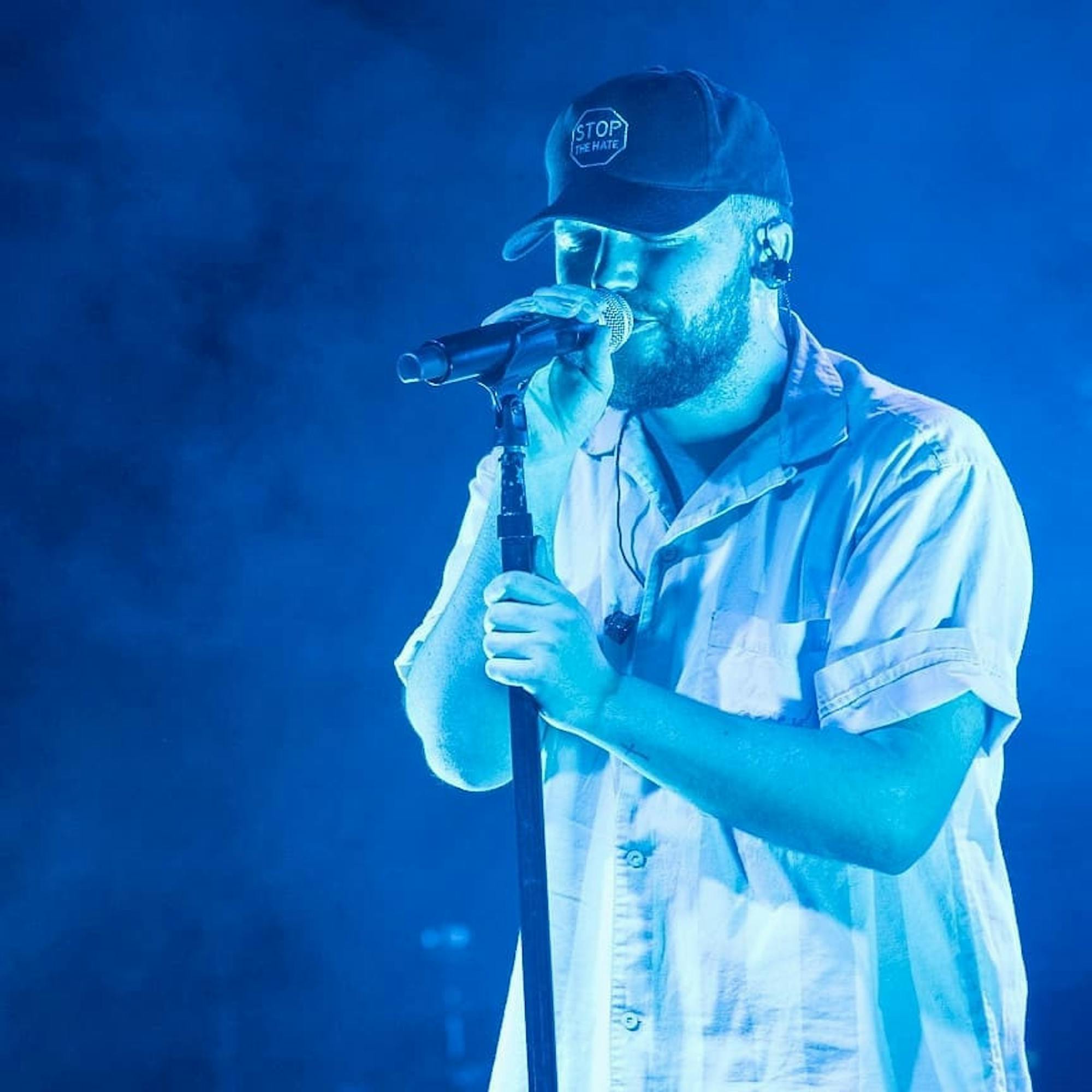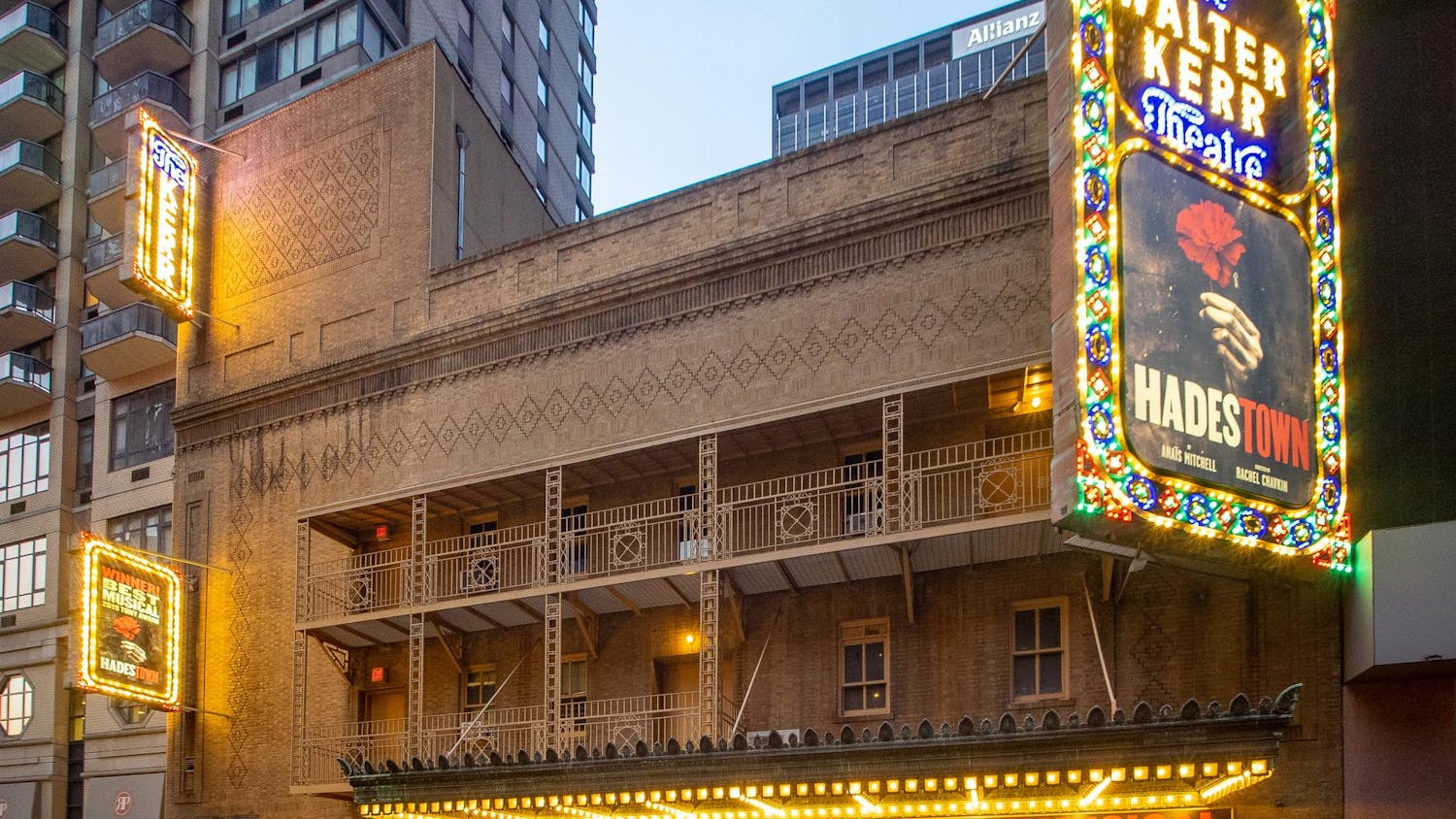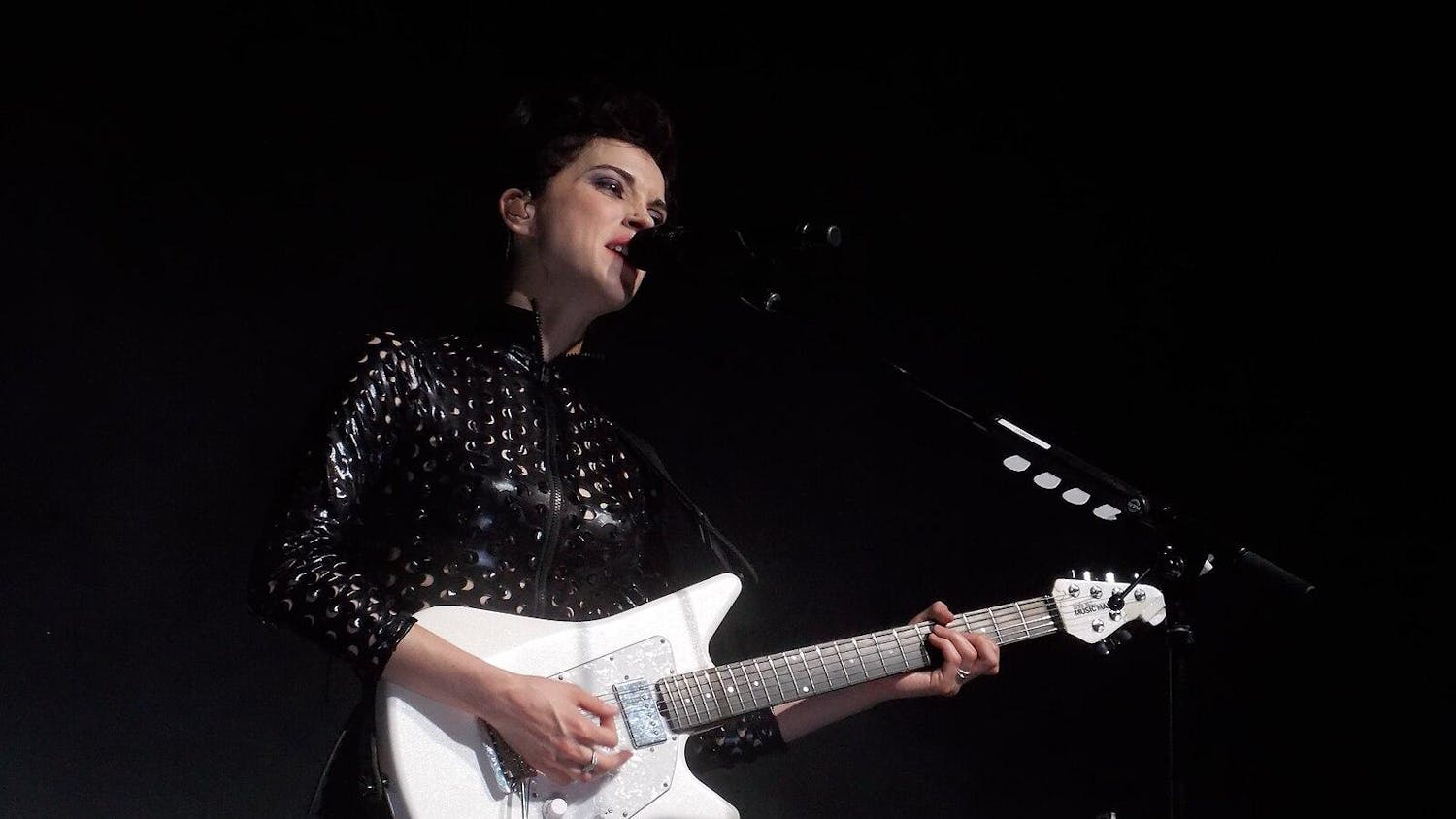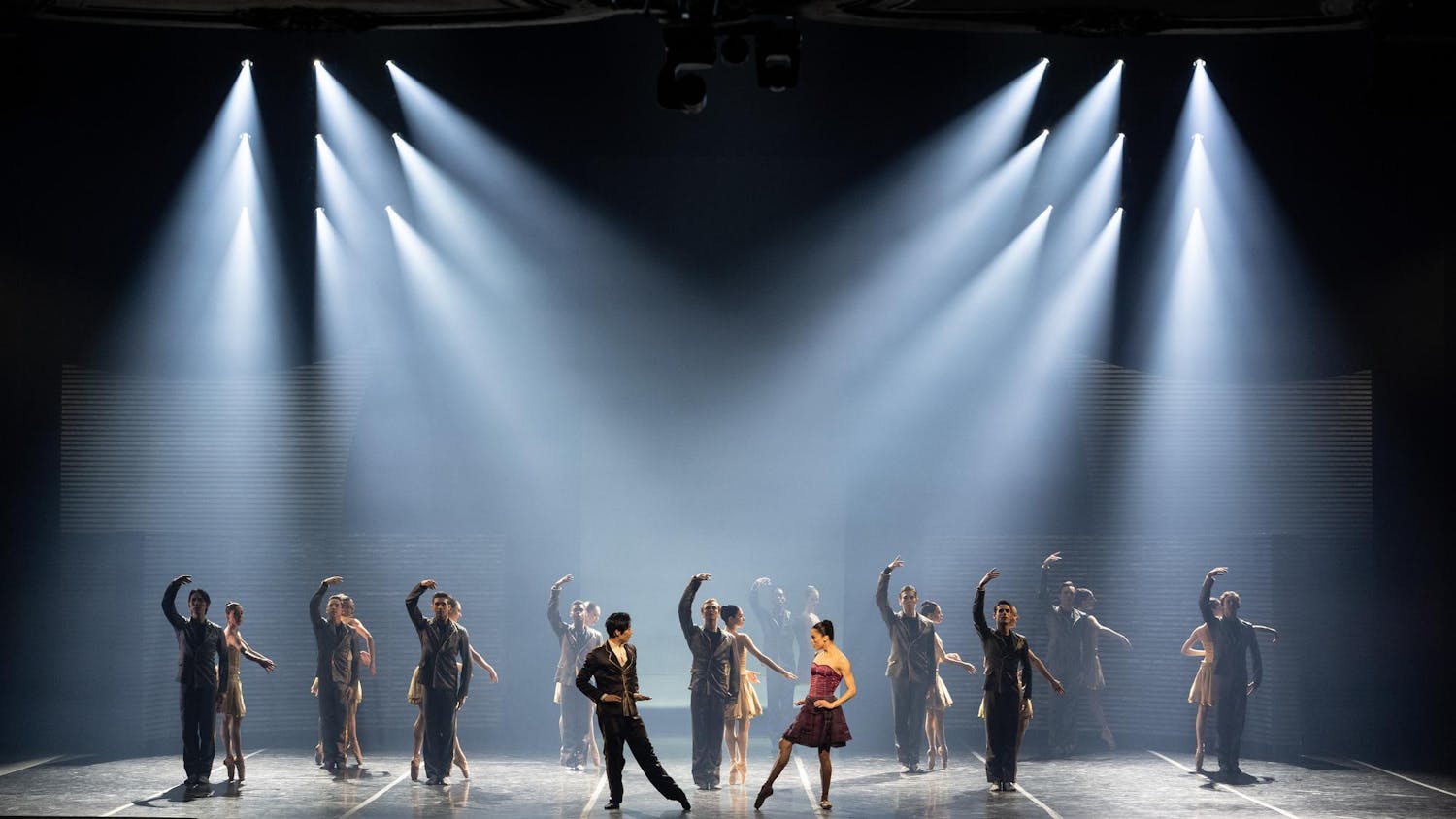Tufts is welcoming Quinn XCII to the President's Lawn stage this Saturday to perform as part of the annual Spring Fling concert.Putting out music that blends pop, hip-hop, electronic and soul,Quinn XCII has been gaining an audience through the release of several EPs over the last few years. Most recently, his debut album, "The Story of Us" (2017),peaked at No. 6 on the iTunes Pop Chart.
The Daily had the chance to speak with the "Straightjacket" singer to discuss how he found his sound, how he views his career so far and what he sees for his future within the music industry.
The Tufts Daily (TD): Your sound is pretty mixed between different genres. How would you describe it and how did you discover it?
Quinn XCII (Q): I would describe the sound as melting pop. It’s really an eclectic mix of a lot of different genres and inspirations. I grew up on a lot of Motown music. I’m from Detroit, so my parents, that’s what they listened to growing up ... When I was little, they would play it around the house. It was always around. I would dance to it as a young kid, and I had really no idea what it was even, but I just found myself really vibing with it. Then I got older and got more into my own taste of music. I found a lot of electronic music I liked. I found a lot of alternative rock music I liked, and hip-hop and reggae. Just all this stuff. So when I went to make my own music, I wasn’t like, "I want to sound like this person or this person." I just kind of went with my intuition and went freely about it. I think subconsciously, all of my tastes in music as a kid and a young adult kind of came out and mixed. That’s kind of how my sound was birthed, I guess you could say. It was never like a premeditated idea like, "Oh, I want to sound like Maroon 5 or this band." I just went with it freely and it came out naturally.
TD: Growing up, what influenced your decision to pursue music?
Q:I grew up just outside Detroit and I think the Midwest in general has very down-to-earth people, humble people, hardworking people. I think when it comes to music, my family wasn’t from a music background by any means. My dad and his brothers own a funeral home, so that’s probably the best example I can give you. Nothing about that screams music. My mom was a nurse for 25 years. My parents were just big fans of music, which is funny. I think you hear artists who gain a level of success, they always have a family member who is in the arts of some sort or had a creative mindset, and that’s what kind of led their children to pursue what they wanted to do. With me, it really wasn’t the case. I kind of stemmed from my parents’ love of music, and I kind of got into that because they were so passionate about it, but they didn’t have careers in it. Once I started doing my own stuff, I’m not sure the area I grew up in shaped my own music or my career; it was more so it shaped the person I am in terms of being the best that I can — a down-to-earth person who is respectable and polite. I think the Midwest has that pretty common narrative, and that helped me become a confident and nice person, as simple of an answer as that is.
TD: You’ve had some major success with different EPs and some songs like “Kings of Summer" (2015). What has your career been like so far?
Q: I’m coming off two sold-out tours and I was just in Europe, which was amazing. I’m going to Australia soon. My album ["The Story of Us"] is still streaming really well. I think things are just moving in a positive direction as far as people catching onto the music, and the fan base is slowly growing day by day, which is really all I can ask for. I think our philosophy as artists but also a management team and a label is that we’re always looking at this in a responsible perspective in terms of, "Let’s make all these strides and take it step-by-step and live in the moment and appreciate the little milestones and not get ahead of ourselves." We all know the big picture and we all want this to succeed, but we all want to live in the moment and take it step by step.
It’s been really amazing to get recognition from people I look up to. I recently signed with Visionary Music Group, which is a management group that manages Logic. To be in that category of artists is awesome and they have a lot of resources I can use, and that’ll boost my career a little more, so that’s really awesome.
TD: What are you looking forward to in the future of your career?
Q: I would give a lot of answers like win Grammys, play arenas, but in general I just want to see this keep going upward. I never want to become irrelevant or be someone who has been forgotten about. I want to keep my name as prevalent in the music scene as possible. I guess my general goal is just [to] enjoy the little accomplishments as they come.
TD: What do you see for the future of the music industry? There are a lot of players in and with technology, things have changed.
Q: I feel like it changes so rapidly nowadays. I think with streaming — outlets like Apple Music and Spotify — music is accessible. Anyone from the age of five to whatever can swipe through playlists and access thousands of songs every day and find a new artist they love. I think that really helps artists because they want to gain fans but they also can find ways to decide where they want to tour or how they want to brand themselves, like what’s working for them and what’s not working for them. Not to single out, but Spotify’s done a great job categorizing artists in terms of these playlists that they make. They’re put in pockets ... of what listeners can think of them as. For example, if I’m put on a chill playlist, it might influence me to put out more chill music. I think the future of the industry is very much consumer-dependent, and what I mean by that is that what the fans and the public like is starting to dictate what major labels do. You see a lot of people these days making viral hits off memes and dance crazes, and these labels are starting to go to these people. It’s a really interesting place to be in music in this day and age.
TD: What brought you to Tufts for Spring Fling? What is your set going to be like?
Q: I’m really excited. Before I answer that, I wanted to say that my cousin actually went to Tufts. But honestly, as boring of an answer as this is, my booking agents hit me up about it and said, "Hey, this school in Massachusetts wants you to do a show, and we think it’s a good opportunity." I think what you can expect from the show is a lot of high energy, and I think my set is always known to be very positive and a lot of jumping around. I like to keep the crowd as engaged as possible throughout the entire time I’m onstage and make them feel like they’re a part of the show and not just watching someone perform. I always say this, but I like to make the crowd just as much a part of the show as I do.
I’m just really excited to be there, and Boston’s one of my favorite cities; I’m fascinated with Boston. I think college shows in general have this — similar to festivals — positive vibe to them. It’s all very good energy, so I think that takes the pressure off me in a sense. I’m really excited to get down there.
Editor’s note: This interview has been edited for clarity and length.
Before Spring Fling performance, Quinn XCII talks discovering his sound, future of his career

Quinn XCII at Irving Plaza on February 27, 2018.





